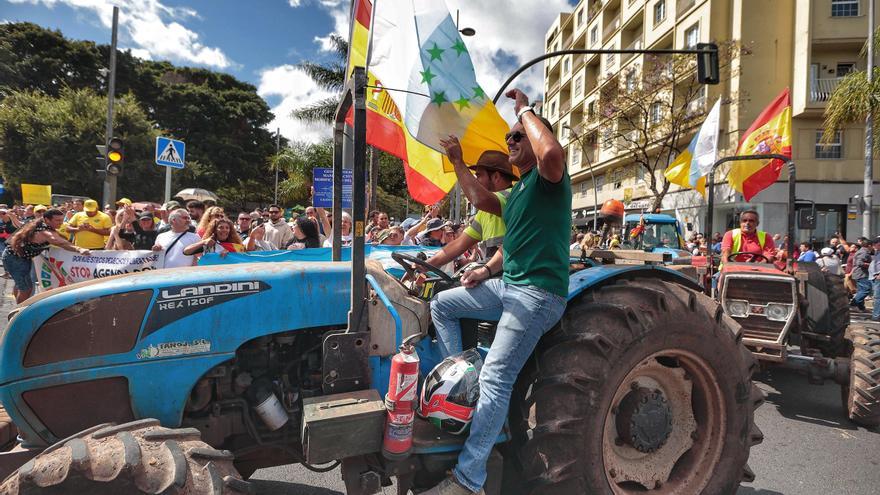
The Canarian countryside can’t bear it anymore. This is what farmers and livestock breeders in the Archipelago have been warning about for months, facing multiple crises in the sector. That’s why agricultural organizations have decided to come together to increase pressure due to a perceived political inaction, even after they took to the streets with their tractors and animals last February to protest their situation.
Representatives from Asaga Canarias, COAG Canarias, UPA, PALCA, and Agate stated on May 15th that the fulfilment of the measures and commitments resulting from that mobilization have been disappointing. Therefore, they claim that the possibility of new demonstrations is back on the table to demand improvements to a situation they consider desperate. In the Peninsula, a new agricultural protest is already scheduled for June 3rd, the same week as the European elections, where Spanish and French agricultural associations have called for roadblocks on both sides of the border.
“We need urgent actions because we are facing a crisis in water supply, economy, and bureaucracy,” emphasized the General Secretary of Asaga, Theo Hernando, who lamented that following this path will lead Canary producers to “be driven out of the market and soon we will depend solely on third countries.”
One of the issues plaguing the Canarian countryside is the water supply crisis, with talks of irrigation restrictions beginning to emerge. The spokesman for Palca Canarias, Sergio Rodríguez, emphasized that agriculture “is not to blame” for this situation but rather the lack of political action. He pointed to errors such as water loss in municipal pipelines and the deficit in hydraulic infrastructures. Therefore, he stressed that if restrictions have to be implemented, the Water Law must be enforced, with priority given to supplying the population first and agriculture afterwards, meaning tourism and leisure would be the first activities to face these limitations. “Either the Water Law is enforced, or the balance will break,” he warned.
Like in the rest of the country, Canarian farmers are also directing many of their demands towards Brussels. Among the requests is the update of the amounts of aids and reference costs of the Posei – to adjust to cost increases -, to make the European Green Deal more flexible so that the transition to the new Common Agricultural Policy (CAP) is less aggressive in the Canary Islands, and the implementation of mirror clauses – requiring the same conditions of quality, food safety, and environmental standards for products coming from third countries.
The General Secretary of COAG in Tenerife, Miguel López, criticized the fact that the Posei allocation has not been updated since 2006 and stated that “rhetorical steps” must be ended, including the declaration of a water supply emergency in Tenerife, as it involves a rise in water prices. “People are at the limit,” he pointed out, stating that “things can get out of hand at any moment”.
Another demand made by Canarian farmers yesterday was the halt of the connection between Fuerteventura and Morocco, considering it poses a high risk of introducing agricultural and livestock pests and diseases, as well as facilitating the entry of food products that would create unfair competition.
[–>
Lastly, they also stressed the importance of taking measures to prevent the exodus of farmers in the Archipelago. Only 12% of farm owners are under 45 years old, and with upcoming retirements, they anticipate a loss of cultivated land and livestock. Therefore, they demand a structural profitability plan to attract young people to the sector.
Subscribe to continue reading
















